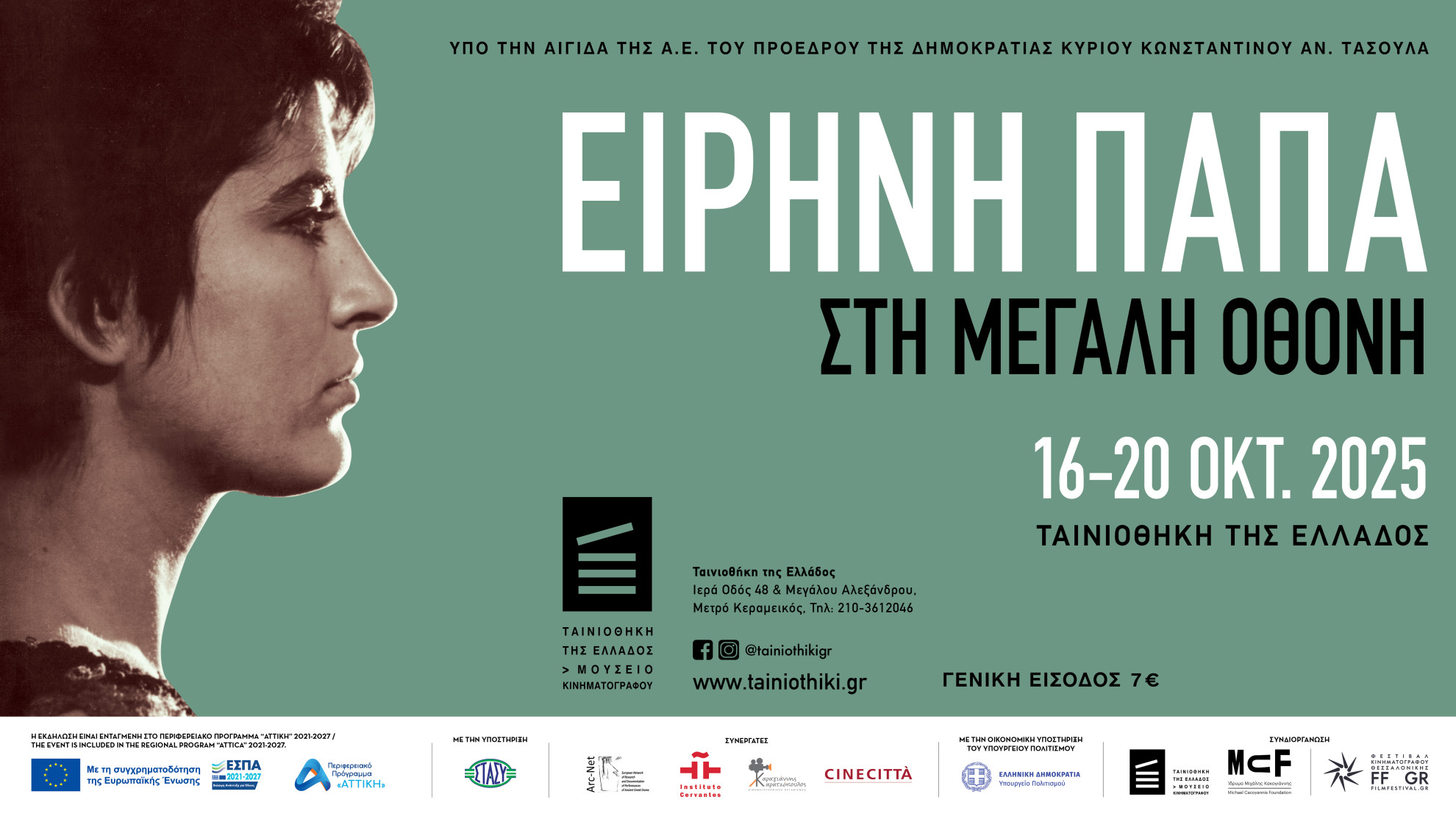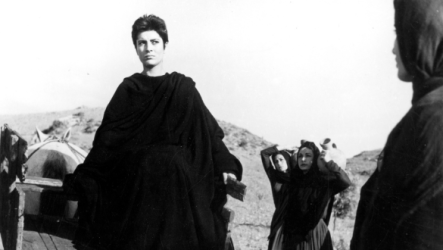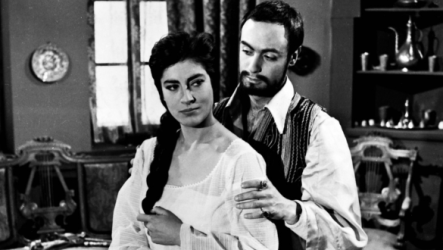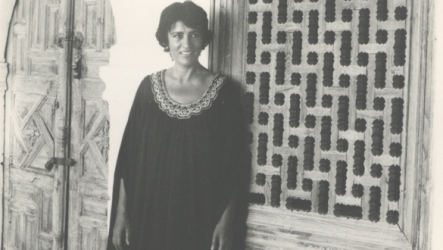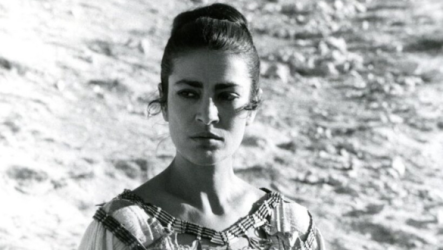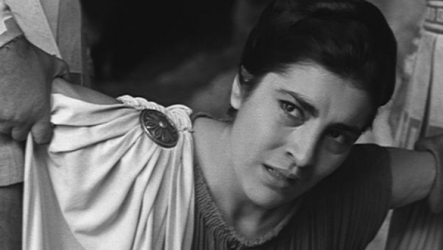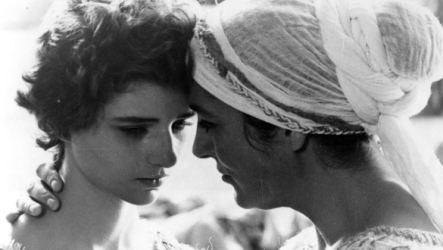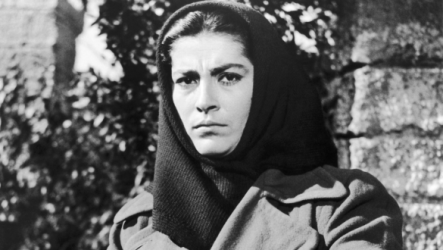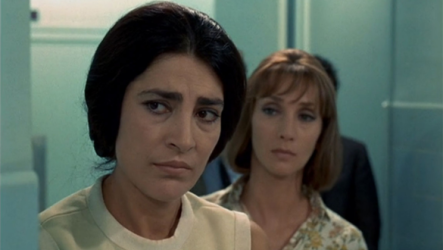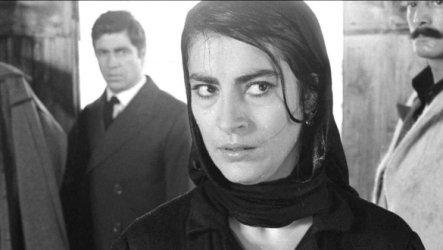October 16 to 20 2025
Greek Film Archive
From October 16 to 20, the Greek Film Archive, the Michael Cacoyannis Foundation and the Thessaloniki International Film Festival present a major tribute to the ultimate Greek star who enchanted the international audience: Irene Papa.
Irene Papas was a world icon of beauty and passion and was acknowledged as the par excellence performer of classical tragedy in both the screen and the stage.
As a young actress, she made her debut at the theater and commercial cinema in Greece, with a milestone in 1951, when she starred in Frixos Iliades’ “Dead City”, which represented Greece at the Cannes Film Festival.
With the help of Elia Kazan, she acted important in few Hollywood productions, such as “The Guns of Navarone” (1961), by J. L. Thompson, where she co-stars with actors such as David Niven, Gregory Peck and Anthony Quinn.
That same year, she was introduced to Michael Cacoyannis, who asked her to take the leading role in his new film, “Electra”. She accepted, at the expense of her beautiful hair, and the result was stunning.
Cacoyannis adapted Euripides Tragedy and set the action away from the palace to the authentic Attic landscape. There, the "humiliated" princess, Electra, reigns among the devoted villagers. Irene Papas enters the pantheon of great stars who shine in the global firmament.
The review published when the film was screened in the USA is indicative: "Rarely do we see a face or an expression of a human figure portray the passion of a character as beautifully as Miss Papas does here." (The New York Times). Irene Papas triumphs and receives the American Film Critics Association award.
In 1961, she stars in the adaptation of Sophocles’ “Antigone”, directed by Giorgos Tzavellas, which, as Aglaia Mitropoulou comments, is closer to the theatrical tradition of the National Theater.
In 1964, she collaborated with Cacoyannis in the international production of “Zorba the Greek”. Cacoyannis' portrayal of the stoning of the widow provoked a storm of reactions from the more conservative side of Greek commentators but Papas performance was well-received by critics and international audiences. An austere and powerful performance by Irini Papa, who portrayed the young widow who the men in the patriarchal village both desire and want to exterminate. Lust and revenge result in her murder.
During the dictatorship, Irene Papas was self-exiled and played an important role in the antidictatorship struggle. She gladly accepted to act in “Z” by Costa-Gavras (1969), in a wonderful cameo performance. In 1974, she collaborated with one of the leading Italian directors of political cinema, Francesco Rosi, and co-stared with Gian Maria Volonté in “Christ Stopped at Eboli”.
In collaboration with Michael Cacoyannis, in a glamorous international production, she gave another great performance as Helen in “The Trojan Women” (1971), Euripides’ leading antiwar play. She and Cacoyannis collaborated for the last time, in 1977, for the adaptation on the screen of one more of Euripides’ tragedies, choosing this time “Iphigenia in Aulis”, and produced “Iphigenia”. This time Irene Papas delivered a gripping performance as Clytemnestra. In 2003 she made her last appearance on the screen in Manoel Olivera’s “A talking picture”.
Maria Komninos, President BoD, Greek Film Archive
PROGRAM
TICKETS:
7€
Online Presale: https://tickets.tainiothiki.gr/

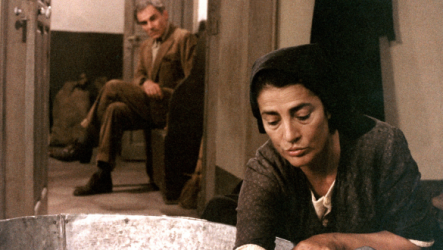
Cristo si è fermato a Eboli
Saturday, 18 October at 21:30
Read more ...





